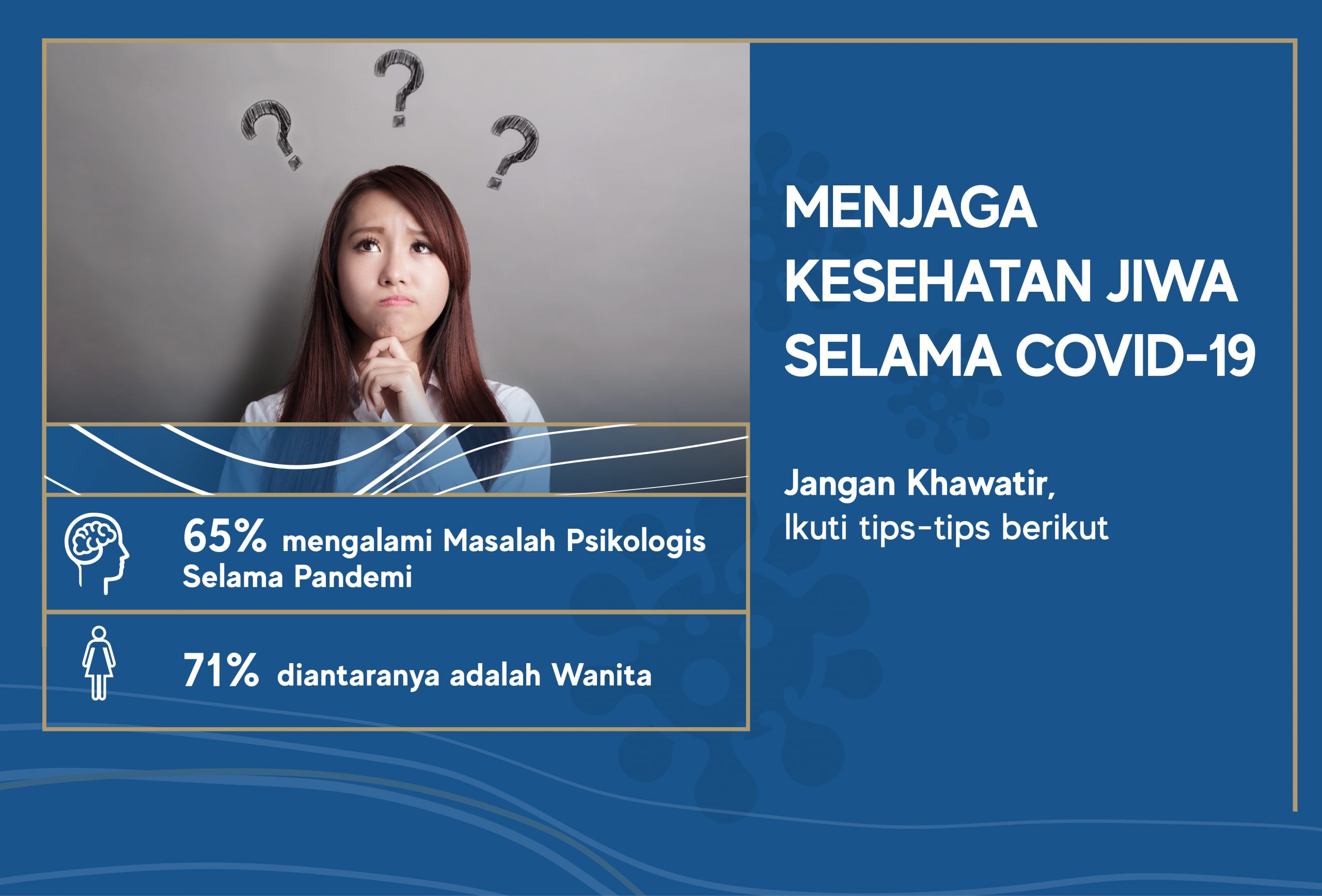Eight months have passed, yet COVID-19 cases in Indonesia are still increasing and causing the public to be restless. kawalcovid19 reported that the total confirmed cases of COVID-19 as of October 7, 2020 totaled up to 315,714, with 240,291 cases declared cured.
The Indonesian Psychiatric Association (PDSKJI) noted that in the 5 months since the COVID-19 pandemic began, 64.8% of psychological disorders had occurred. The most common psychological problems are anxiety, depression and psychological trauma. Of the 4010 people included in the study, 71% were women.
The various psychological problems that have occurred during the COVID-19 pandemic are thought to be associated with lifestyle changes and widespread information about the dangers of COVID-19. The Indonesian government’s policy, Large-Scale Social Restrictions (PSBB, has affected the public’s lifestyle. The policy states that activities outside the home must be limited; in fact, almost all employees are required to work from home. Given these limitations, many people have difficulty adapting and show different responses. According to the viewpoint of a psychiatrist, with regard to facing COVID-19, each person exhibits the following two responses:
- Reactive is the attitude of someone who responds to a situation with distress, exhibiting tension, aggression, and panic.
- Responsive is the attitude of someone who responds to a situation with eustress, staying calm and wise, and learning about the condition in a proper manner.
Psychological problems such as anxiety, depression, and psychological trauma generally result from reactive responses. The World Health Organization provides several tips for maintaining mental health during the COVID-19 pandemic, namely:
- Seeking out trusted friends or family to chat and share your feelings
- Maintaining a healthy lifestyle, for example eating nutritious foods, getting enough sleep, exercising, and still socializing with friends or family who are not living in the same house
- Not smoking or consuming alcohol and illegal drugs
- Seeking information about COVID-19 from reliable sources
- Limiting yourself from accessing information about COVID-19 that makes you feel anxious or afraid
- Engaging in hobbies to maintain emotional stability
If you feel that your anxiety or fear is interfering with your daily activities, seek immediate help from the nearest psychiatrist or psychologist.
References

